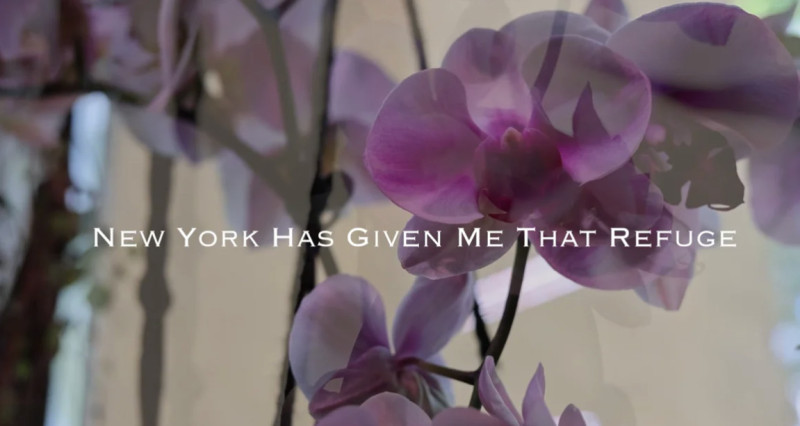
New York has given me that Refuge
In this film, refugee South Asian LGBTQ+ activist Barbara Khan talks about her migration from Pakistan and her life in New York as a trans woman.
THE DOORS HAVE OPENED FOR ME
Well, I feel good here, gracias a Dios. I have help, and I’m better than when I was in my country. Back there I couldn’t go to school because I was taking my daughters to school. I would’ve liked to graduate from high school and go to school to study to become a lawyer.
l’ve been in the United States for a year now. Here I have two sisters and four brothers. We’re seven altogether. My twenty-three year-old sister had already lived here for about seven years when I came. She works at a restaurant. I live in Oakland with my sister, near Highland Hospital. It’s not dangerous in this area. It’s mostly Chinese. I’m starting to figure out how to get around on public transportation. I’ve gone to San Francisco. I like it. I understand a little English, but I’m afraid to speak. My teacher told me, “Don’t be afraid to speak. Nobody is born with a language already known. Everything is learned.”
Right now I’m going to Oakland International High School, but during my vacations I work. The school is really good. They teach us a lot and help a lot if we have problems. There are many Hondurans, Salvadorans, Guatemalans, Mexicans, Arabs, and Chinese-people from everywhere! I have a lot of friends at school and feel like I’m part of a community. I’ve had a lot of support from my teachers, classmates, and fellow Guatemalans. Those who know more than me always help me feel comfortable. I’ve never felt sad, even if I don’t know what the teacher is saying, and I didn’t understand anything at first because it was all in English. Sometimes I even slept at my desk because I didn’t understand anything, but now, after six months, I have a little more confidence. The more time I spend in school, the better I get and the more I learn. I plan to go to college if God wills it. I’m about to enter the tenth grade, so I have two more years to finish high school.
In Guatemala, things are more difficult, and I felt for a time that the doors had been closed. Coming here, I feel that the doors have opened for me to move forward with my dreams. The counselors at school told me where I could apply for welfare at a local social service office. I didn’t want to go, but I went. And I got a bit of money to pay my rent and all. I’m trying to do what my teachers advise, like I need to get a laptop computer because I have a Rosetta Stone account and I can improve my English at home. With this program, I practice pronunciation, and I write and talk. we’re reading books in English.
My kids aren’t afraid anymore. They’re calm. Jazmin goes to school from 9 a.m. to 2:45 p.m., and after that she’s at home with me. We pay for someone to take care of Laura. I’d like to graduate from college here and for my children to graduate as well. Then maybe we could go back to Guatemala.
In addition to poverty and a lack of prospects, fear of (gang) violence is a central cause of flight for many people from Central America. Around 7.5 million illegal immigrants from Mexico and Central America live in the USA. The International Organization for Migration (IOM) also estimates that about 100,000 migrants from El Salvador, Honduras and Guatemala apply for asylum in the United States each year. To avoid arrest, refugees must pay smugglers, known as coyotes, corrupt border agents and take risky escape routes. During their flight, migrants are repeatedly abducted, mistreated and sexually assaulted. Many are considered missing. As a result, at the end of 2018, a large migration train formed in Honduras, joined by thousands of people from El Salvador and Guatemala, to cross into the U.S. through Mexico under cover of the crowd and on foot. However, they were denied entry to the border on the grounds that they were not from a country at war and therefore not eligible for asylum.
Itzel Tzab was born in La Libertad, Petén in Guatemala. She grew up in rural poverty, where her family experienced deadly assaults by violent neighbors. She fled at the age of 18 with her two daughters of 4 and 5 years from the family of her ex-boyfriend, who threatened and harassed her. Her story sheds light on the challenges facing women and girls who have fled abusive partners and are trying to establish a new life in the United States. Here she tells about her new beginning.
Mayers, Stevens / Freedman, Jonathan, 2019: Solito, Solita. Crossing Borders with Youth Refugees from Central America. Haymarker Books, Chicago, p. 248.